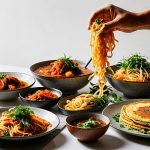Protein for Vegetarians: Essential Sources and Tips
As more and more people adopt to vegetarian diets, understanding how to meet protein needs without meat becomes increasingly important. It can be quite difficult to find a proper protein source. Protein is a vital macronutrient that plays a critical role in building and repairing tissues, producing enzymes and hormones, and supporting overall health. Fortunately, there are numerous plant-based sources of protein that can easily fit into a vegetarian diet. This article explores the best protein sources for vegetarians and offers practical tips for incorporating them into your meals.
Top Vegetarian Protein Sources
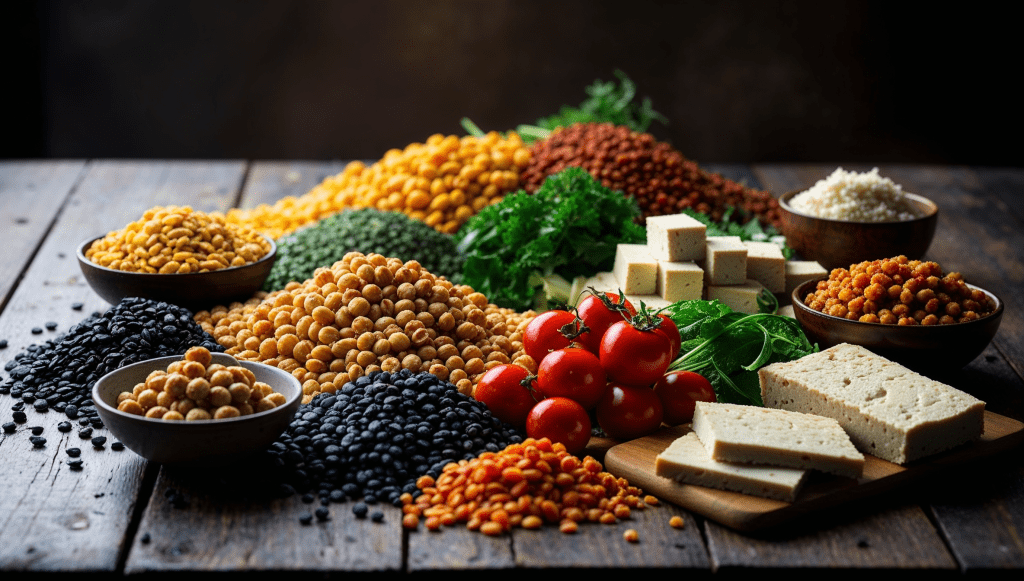
- Legumes and Beans
- Lentils: A powerhouse of protein, lentils provide about 9 grams of protein per half-cup cooked. They are incredibly versatile and can be used in soups, stews, salads, or veggie burgers.
- Chickpeas: Also known as garbanzo beans, chickpeas contain around 20 grams of protein per half-cup. They can be roasted for snacks, blended into hummus, or added to curries.
- Black Beans: With approximately 15 grams of protein per cup cooked, black beans are excellent in tacos, burritos, or salads.
- Soy Products
- Tofu: Made from soy milk, tofu is a versatile ingredient that provides about 11 grams of protein per half-cup. It can be stir-fried, grilled, or blended into smoothies.
- Tempeh: Fermented soybeans form tempeh, which offers around 17 grams of protein per three-ounce serving. Its nutty flavor makes it great for stir-fries or sandwiches.
- Edamame: Young soybeans that are often served in pods, edamame contains about 18 grams of protein per cup when cooked.
- Whole Grains
- Quinoa: Unlike most grains, quinoa is a complete protein source, providing all nine essential amino acids. One cup of cooked quinoa contains about 8 grams of protein.
- Brown Rice: While not as high in protein as quinoa, brown rice still contributes valuable nutrients and pairs well with legumes to form a complete protein.
- Oats: A hearty breakfast option, oats provide around 6 grams of protein per cup cooked and are rich in fiber.
- Nuts and Seeds
- Chia Seeds: These tiny seeds pack a punch with about 5 grams of protein per two tablespoons. They can be added to smoothies, oatmeal, or used to make chia pudding.
- Hemp Seeds: Offering around 10 grams of protein per three tablespoons, hemp seeds are excellent in salads or blended into smoothies.
- Almonds: Providing about 6 grams of protein per ounce, almonds make a great snack on their own or can be added to dishes for extra crunch.
- Dairy and Eggs (for Lacto-Ovo Vegetarians)
- Greek Yogurt: This thick yogurt contains approximately 20 grams of protein per cup and can be enjoyed plain or with fruits and nuts.
- Cottage Cheese: With about 28 grams of protein per cup, cottage cheese is a nutritious option that can be eaten alone or mixed into salads.
- Eggs: A staple for many vegetarians, one large egg contains about 6-8 grams of high-quality protein.
Tips for Increasing Protein Intake
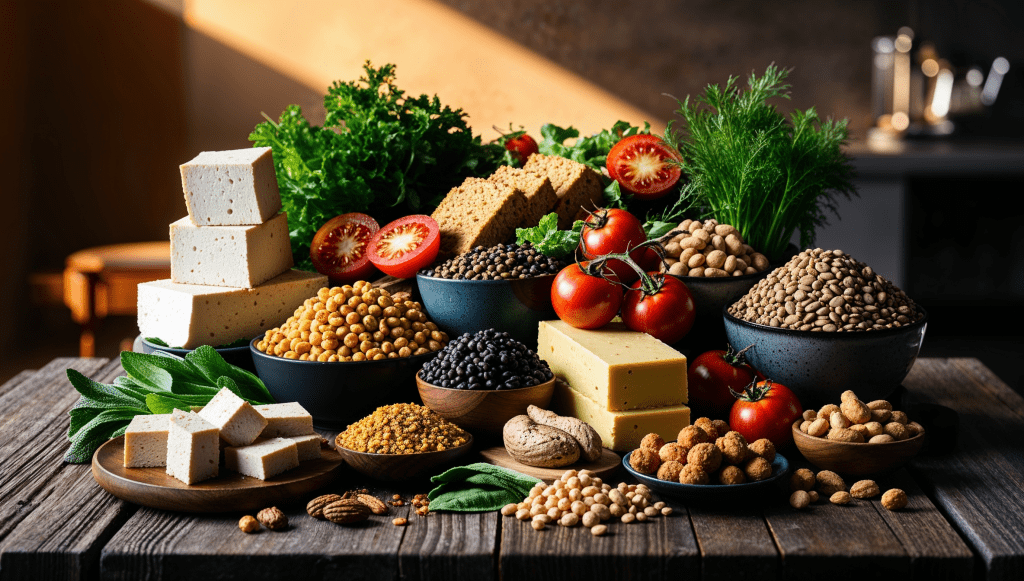
- Combine Foods: Pairing complementary proteins—such as rice and beans—ensures you get all essential amino acids your body needs.
- Snack Wisely: Choose high-protein snacks like hummus with veggies, Greek yogurt with fruit, or nut butter on whole-grain toast.
- Incorporate Protein Powders: Plant-based protein powders made from peas, brown rice, or hemp can boost the protein content of smoothies or baked goods.
- Plan Balanced Meals: Aim to include a source of protein in every meal. For example, add lentils to your salad or tofu to your stir-fry.
Meeting your protein needs as a vegetarian is not only achievable but also enjoyable with the wide variety of plant-based options available. By incorporating legumes, soy products, whole grains, nuts, seeds, dairy (if included), and eggs into your diet, you can ensure you receive adequate protein while enjoying delicious meals. With thoughtful planning and creativity in the kitchen, a vegetarian diet can be both nutritionally complete and satisfying.
Which Protein Source is Right for Me as a Vegetarian?
Navigating the world of vegetarian protein sources can be overwhelming, especially with the myriad of options available. Whether you’re a seasoned vegetarian or new to plant-based eating, understanding which protein sources align with your dietary preferences, lifestyle, and health goals is crucial. This article delves into various vegetarian protein sources, helping you determine which options are best suited for your needs.
Understanding Your Protein Needs
Before diving into specific sources, it’s essential to understand your individual protein requirements. The Recommended Dietary Allowance (RDA) for protein is about 46 grams per day for women and 56 grams for men, but this can vary based on factors such as age, activity level, and overall health.
Top Vegetarian Protein Sources
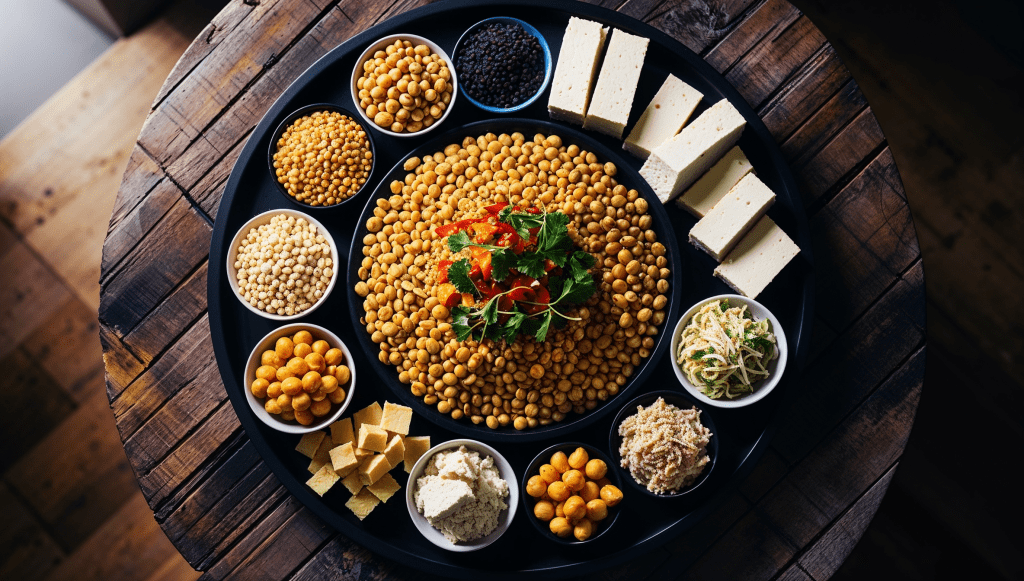
- Legumes and Beans
- Lentils: With around 9 grams of protein per half-cup cooked, lentils are versatile and easy to incorporate into soups, salads, and veggie burgers.
- Chickpeas: Providing about 20 grams of protein per half-cup, chickpeas can be roasted for snacks or blended into hummus.
- Black Beans: These beans offer approximately 15 grams of protein per cup cooked and are excellent in tacos or salads.
- Soy Products
- Tofu: Known as a staple in vegetarian diets, tofu contains about 11 grams of protein per half-cup. It’s incredibly versatile and absorbs flavors well.
- Tempeh: A fermented soy product that packs around 17 grams of protein per three-ounce serving. Its nutty flavor makes it great for stir-fries or sandwiches.
- Edamame: Young soybeans that provide about 18 grams of protein per cup when cooked. They can be enjoyed as a snack or added to salads.
- Whole Grains
- Quinoa: A complete protein source with about 8 grams of protein per cup cooked. Quinoa can serve as a base for salads or bowls.
- Brown Rice: While lower in protein compared to quinoa, brown rice is still a valuable source and pairs well with legumes to create complete proteins.
- Nuts and Seeds
- Hemp Seeds: These seeds provide about 10 grams of protein per three tablespoons and can be added to smoothies or yogurt.
- Almonds: Offering approximately 6 grams of protein per ounce, almonds make a great snack or topping for dishes.
- Chia Seeds: With around 5 grams of protein per two tablespoons, chia seeds can be added to smoothies or oatmeal.
- Dairy Products (for Lacto-Ovo Vegetarians)
- Greek Yogurt: Contains about 20 grams of protein per cup and is excellent for breakfast or snacks.
- Cottage Cheese: A rich source of protein with approximately 28 grams per cup, it can be enjoyed on its own or mixed with fruits.
- Eggs (for Lacto-Ovo Vegetarians)
- One large egg contains about 6-8 grams of high-quality protein and can be prepared in various ways.
Choosing the Right Protein Source for You
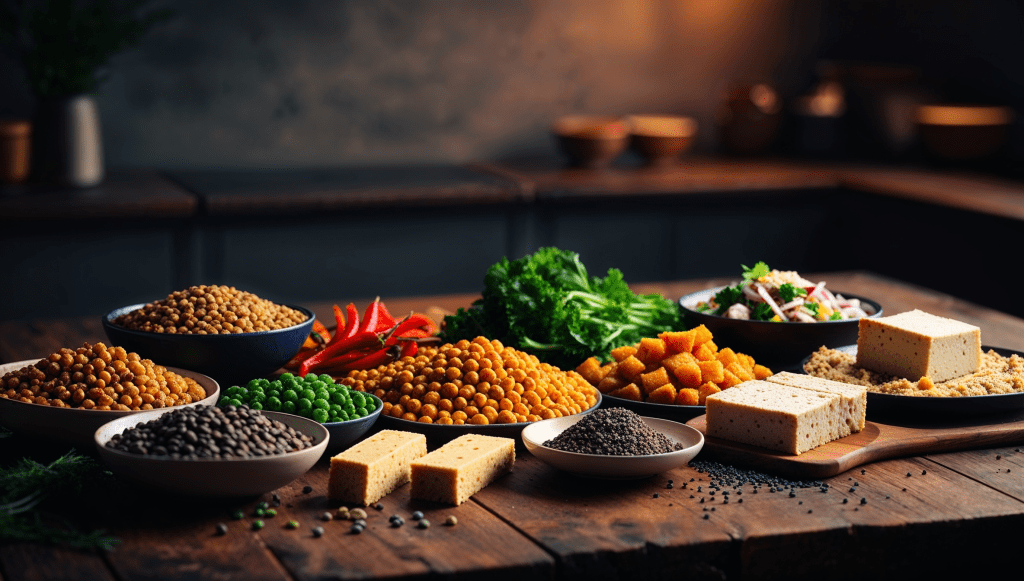
When determining which vegetarian protein sources are right for you, consider the following factors:
- Dietary Restrictions: If you have allergies (e.g., soy or nuts), ensure you choose alternative sources that fit your needs.
- Culinary Preferences: Think about what flavors and textures you enjoy. For example, if you prefer hearty meals, legumes like lentils and black beans may appeal to you more than lighter options like tofu.
- Nutritional Goals: If you’re looking to increase fiber intake alongside protein, legumes and whole grains are excellent choices. Conversely, if you’re focusing on muscle gain, consider higher-protein options like tempeh or Greek yogurt.
- Meal Preparation Time: Some sources require more preparation than others. For quick meals, canned beans or pre-cooked lentils might be more convenient than cooking dried beans from scratch.
- Variety: Aim for a diverse diet that includes multiple sources of plant-based proteins to ensure you receive all essential amino acids over time.
Finding the right vegetarian protein sources depends on your personal preferences, dietary restrictions, and nutritional goals. By incorporating a variety of legumes, soy products, whole grains, nuts, seeds, dairy (if included), and eggs into your meals, you can easily meet your protein needs while enjoying delicious and satisfying dishes. As you explore these options, remember that balance and variety are key to a healthy vegetarian diet!
How a Vegetarian Cookbook Can Help You Find the Proper Protein Source
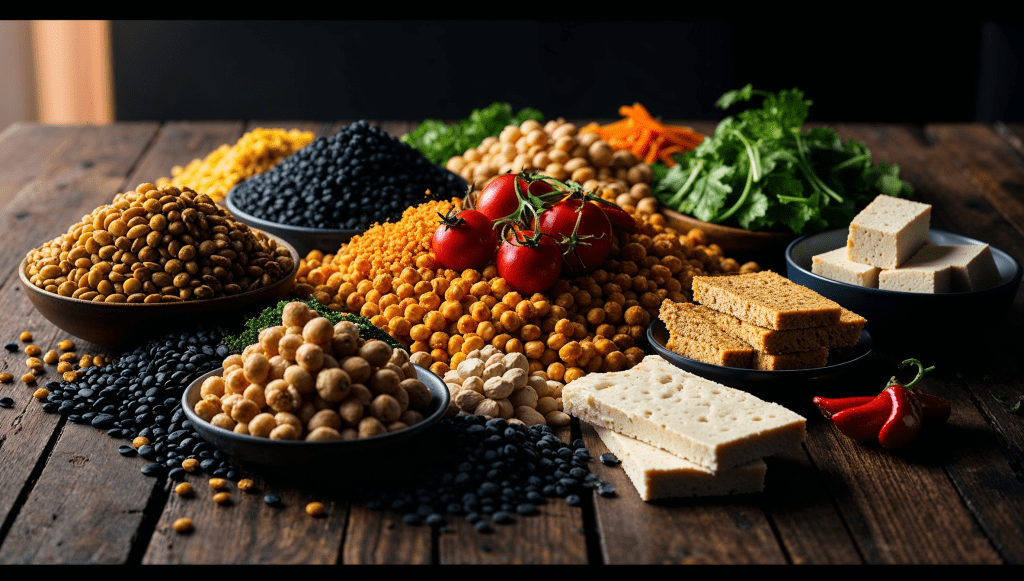
Navigating the world of vegetarianism can sometimes feel overwhelming, especially when it comes to ensuring you get enough protein in your diet. With so many options available, from legumes and grains to nuts and dairy, it can be challenging to determine which sources are best for your individual needs. This is where a vegetarian cookbook can be an invaluable resource, guiding you in selecting the right protein sources and incorporating them into delicious meals.
1. Comprehensive Protein Information
Many vegetarian cookbooks provide detailed information about various protein sources, including their nutritional profiles and benefits. By understanding the protein content of different foods, you can make informed choices about which ingredients to include in your meals. Cookbooks often highlight high-protein options like lentils, chickpeas, quinoa, and tofu, helping you recognize their importance in a balanced vegetarian diet.
2. Diverse Recipes Featuring Protein Sources
A well-crafted vegetarian cookbook offers a wide array of recipes that showcase various protein sources. Whether you’re looking for hearty lentil soups, protein-packed grain bowls, or delicious chickpea salads, these cookbooks provide inspiration for incorporating diverse ingredients into your meals. By trying out different recipes, you can discover new favorites while ensuring you’re meeting your protein needs.
3. Meal Planning Made Easy
Many cookbooks include meal-planning sections that help you organize your week’s worth of meals around protein-rich foods. This can be particularly beneficial if you’re trying to increase your protein intake or ensure a balanced diet. By planning meals that incorporate various protein sources throughout the week, you’ll not only simplify your grocery shopping but also enhance your culinary skills.
4. Tips for Combining Proteins
A vegetarian cookbook often provides guidance on combining different protein sources to create complete proteins. For example, pairing rice with beans or quinoa with nuts can ensure you’re getting all essential amino acids in your diet. These tips can help you maximize the nutritional value of your meals while keeping them exciting and flavorful.
5. Adaptable Recipes for Dietary Needs
Many cookbooks cater to specific dietary restrictions or preferences, such as gluten-free or soy-free options. This adaptability allows you to find recipes that align with your personal health goals while still focusing on protein-rich ingredients. Whether you need to avoid certain allergens or simply prefer specific flavors, a good vegetarian cookbook will have something for everyone.
6. Encouragement for Experimentation
One of the joys of cooking is experimenting with new ingredients and flavors. A vegetarian cookbook encourages this exploration by introducing you to lesser-known protein sources like tempeh or seitan and providing creative ways to use them in your cooking. This not only enhances your culinary repertoire but also helps you discover new sources of plant-based protein that may become staples in your diet.
Finding the proper protein source as a vegetarian doesn’t have to be daunting. A well-designed vegetarian cookbook can serve as an essential tool in your kitchen, offering valuable information about protein-rich foods, diverse recipes, meal planning tips, and guidance on combining proteins effectively. By incorporating these resources into your cooking routine, you’ll not only meet your protein needs but also enjoy the process of creating delicious and nutritious meals that align with your dietary preferences and lifestyle. So grab a vegetarian cookbook today and embark on a flavorful journey toward a balanced and satisfying vegetarian diet!






